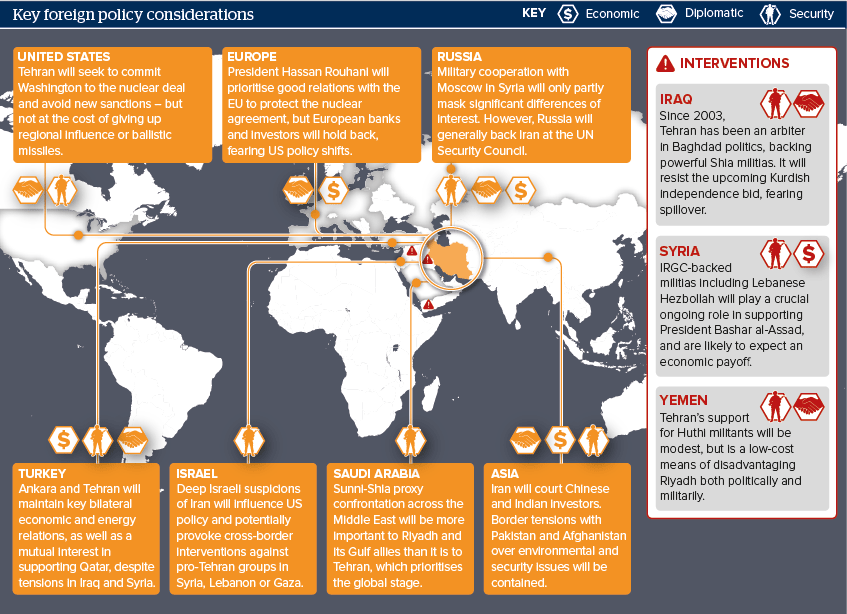Iranian foreign policy will be internally divided
The military priorities of the Islamic Revolution Guard Corps could undercut the foreign ministry’s soft diplomacy
Source: Oxford Analytica
Outlook
Foreign policy control will be divided in Tehran. The moderate government of President Hassan Rouhani will focus on preserving the 2015 nuclear agreement with world powers, despite threats from US President Donald Trump. Rouhani needs an influx of foreign direct investment to provide the 1 million new jobs required annually by the young population.
By contrast, the conservative Islamic Revolution Guard Corps (IRGC) will control regional policy and the involvement in local conflict zones through proxy militias. That risks undercutting Rouhani’s diplomacy by worsening Sunni-Shia tensions.
Supreme Leader Ali Khamenei will mediate these two trends, leaning towards the conservative side.
Impacts
- IRGC hardliners could potentially provoke a naval clash with the United States in the Gulf.
- Ongoing fears of US sanctions will prevent Iran’s full re-engagement with the international financial system.
- Tehran will seek to improve regional cooperation to manage water resources and control dust storms.
See also
- Prospects for Iran to end-2017 - Jun 29, 2017
- More graphic analysis
